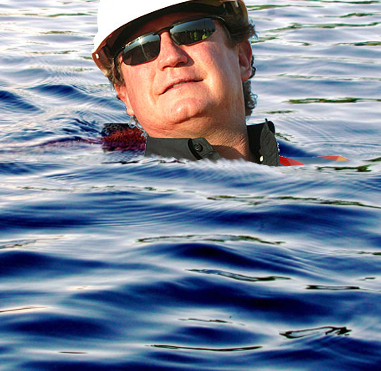Forrest seeks water fix
 Mining billionaire Andrew 'Twiggy' Forrest is making a multimillion-dollar investment push into aquaculture.
Mining billionaire Andrew 'Twiggy' Forrest is making a multimillion-dollar investment push into aquaculture.
Mr Forrest says a rapid increase in demand for protein around the world cannot be satisfied by wild-catch seafood resources.
“There has to be ways whereby we can create seafood without raping and pillaging the natural ecosystems which the world relies on,” the mining boss said.
Mr Forrest's agribusiness firm, Harvest Road Group, is buying an oyster farming operation at Albany, on Western Australia's south coast, for an undisclosed sum.
Harvest Road is also looking to buy or develop aquaculture assets around the state, including mussel farms at Albany and Cockburn Sound, near Perth.
It has also proposed building a major new oyster farm off WA's Gascoyne coast.
Harvest Road says it will increase its annual production from 10,000 dozen oysters to 1.5 million, which will be sold as ‘environmentally sustainable’ produce.
“We are creating oysters, and we're beginning to create scallops and mussels, without any disturbance to the environment — certainly [without] what crucifies the coastal and marine ecosystem, which is dredging,” he said.
“We can produce a beautiful seafood which actually builds up the natural habitat [and] increases the richness of the marine ecosystems in our waters.”
Mr Forrest says he is motivated both by the investment potential, but also by an alleged “lifelong interest in the ocean”.
“Wild-caught or line-caught seafoods, which are being depleted at a furious and totally unsustainable rate,” he said.
“Mankind needs to wake up to the fact that if it destroys our oceans, we'll destroy ourselves.
“Sustainable seafood, such as what Albany can provide, has a real, deep potential to have a flourishing industry right here in Albany and have Albany lead the world for sustainable seafood.”
Some have criticised Mr Forrest’s new environmental concern as it does not appear to extend to the pillage of terrestrial ecosystems, which has netted him billions of dollars.
But even a blind billionaire squirrel finds a nut now and again, with stats showing the illicit global seafood trade costs billions of dollars every year.
The joint study by the University of Western Australia and Canada's University of British Colombia recently found that up to 14 million tonnes a year of unreported fish catches are being traded illegally around the world.
The estimated value of the seafood traded on the black market is between $14 billion and $26 billion.
One of the report’s authors, UWA's Dirk Zeller, says the problem is due to “large foreign industrial” vessels catching and processing “huge volumes” of fish, which “are then directly shipped overseas without unloading and processing in host countries, depriving local economies of revenue, income, and jobs”.








 Print
Print